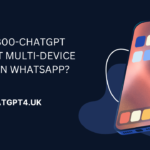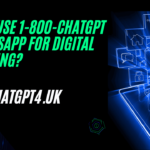What is GlasgowGPT and How Does It Impact Language Understanding? In recent years, there has been significant progress in the field of natural language processing (NLP) and machine learning. One of the most notable advancements is the development of large-scale language models that can understand and generate human-like text.
Glasgow-GPT is one such language model that has gained attention for its impressive capabilities in language understanding. In this article, we will explore what Glasgow-GPT is, how it works, and the impact it has on language understanding.
Understanding GlasgowGPT:
GlasgowGPT is an advanced language model developed by researchers at the University of Glasgow. It is based on the GPT-3.5 architecture, which is part of the GPT (Generative Pre-trained Transformer) family of models developed by OpenAI. GlasgowGPT has been fine-tuned on a vast amount of text data and is trained to understand and generate human-like text across a wide range of topics and domains.
Architecture and Training:
GlasgowGPT is built on a transformer architecture, which has proven to be highly effective in NLP tasks. The model consists of multiple layers of self-attention mechanisms, enabling it to capture complex patterns and dependencies in language. It is trained using unsupervised learning, where it learns from a large corpus of text data without explicit labels. The training process involves predicting the next word in a sentence given the preceding context, allowing the model to learn the statistical properties of language.
Also Read: Why Italy banned ChatGPT?
Fine-tuning for Language Understanding:
To enhance its language understanding capabilities, GlasgowGPT undergoes a process called fine-tuning. During fine-tuning, the model is trained on specific tasks or datasets that require a deeper understanding of language.
This process helps to align the model’s knowledge with the specific domain or context in which it will be used. By fine-tuning on a diverse range of datasets, GlasgowGPT becomes proficient in various linguistic tasks, including sentiment analysis, text classification, question answering, and more.
Impact on Language Understanding:
GlasgowGPT has made significant contributions to language understanding across multiple domains. Its ability to comprehend and generate human-like text has applications in various fields, including customer service, content generation, chatbots, language translation, and information retrieval. Glasgow-GPT’s impact on language understanding can be seen in the following ways:
Improved Natural Language Understanding (NLU):
GlasgowGPT’s advanced architecture and training enable it to understand and interpret natural language with impressive accuracy. It can analyze complex sentence structures, grasp the meaning of idiomatic expressions, and comprehend subtle nuances in language. This improved NLU capability opens up opportunities for more sophisticated and context-aware applications.
Enhanced Language Generation:
Not only can GlasgowGPT understand language, but it can also generate coherent and contextually relevant text. It can produce high-quality content, generate personalized responses, and even mimic different writing styles. This capability is particularly valuable in content creation, where GlasgowGPT can assist with writing articles, emails, social media posts, and more.
Multilingual Understanding:
Language understanding is not limited to a single language, and GlasgowGPT excels in multilingual understanding. It can comprehend and generate text in multiple languages, enabling effective communication across different linguistic communities. This feature has profound implications for global collaboration, translation services, and cross-cultural communication.
Democratizing Language Understanding:
GlasgowGPT’s availability and accessibility have played a crucial role in democratizing language understanding. The model’s open-source nature allows researchers, developers, and enthusiasts to experiment and build upon its capabilities. This democratization fosters innovation and empowers individuals and organizations to leverage advanced language understanding technologies.
Ethical Considerations:
As with any powerful technology, there are ethical considerations associated with GlasgowGPT and language models in general. Issues such as biased outputs, misuse of generated content, and privacy concerns need to be addressed. Researchers and developers are actively working on mitigating these challenges by promoting transparency, fairness, and accountability in the development and deployment of language models.
Conclusion:
GlasgowGPT represents a significant leap forward in language understanding. Its advanced architecture, fine-tuning process, and multilingual capabilities enable it to comprehend and generate text with remarkable accuracy. The impact of GlasgowGPT on language understanding is vast, opening up possibilities for improved customer service, content generation, translation services, and more.
However, as with any powerful technology, ethical considerations must be taken into account to ensure its responsible and beneficial use. GlasgowGPT is undoubtedly a milestone in the field of NLP and sets the stage for further advancements in language understanding and generation.
FAQs
What is fine-tuning?
Fine-tuning is a process where GlasgowGPT is trained on specific tasks or datasets that require a deeper understanding of language. This process aligns the model’s knowledge with the particular domain or context it will be used in, enhancing its language understanding capabilities.
What impact does GlasgowGPT have on language understanding?
GlasgowGPT has a significant impact on language understanding in various ways. It improves natural language understanding (NLU), enhances language generation, excels in multilingual understanding, and democratizes language understanding by making it accessible to researchers and developers.
How does GlasgowGPT improve NLU?
GlasgowGPT’s advanced architecture and training enable it to analyze complex sentence structures, grasp the meaning of idiomatic expressions, and comprehend subtle nuances in language. This improved NLU capability allows for more sophisticated and context-aware applications.
Can GlasgowGPT generate human-like text?
Yes, GlasgowGPT can generate coherent and contextually relevant text. It can produce high-quality content, generate personalized responses, and even mimic different writing styles, making it valuable for content creation tasks.
Does GlasgowGPT understand multiple languages?
Yes, Glasgow-GPT excels in multilingual understanding. It can comprehend and generate text in multiple languages, facilitating effective communication and translation services across linguistic communities.
Are there any ethical considerations with Glasgow-GPT?
Yes, like any powerful technology, Glasgow-GPT raises ethical concerns. These include issues of biased outputs, misuse of generated content, and privacy concerns. Researchers and developers are actively working to address these challenges and promote responsible and fair use of language models.
Can Glasgow-GPT be used for customer service?
Yes, Glasgow-GPT’s language understanding capabilities make it suitable for customer service applications. It can understand and respond to customer queries, providing valuable assistance and support.
How can Glasgow-GPT impact content generation?
Glasgow-GPT’s language generation capabilities make it valuable for content generation tasks. It can assist with writing articles, emails, social media posts, and more, providing high-quality and contextually relevant content.







